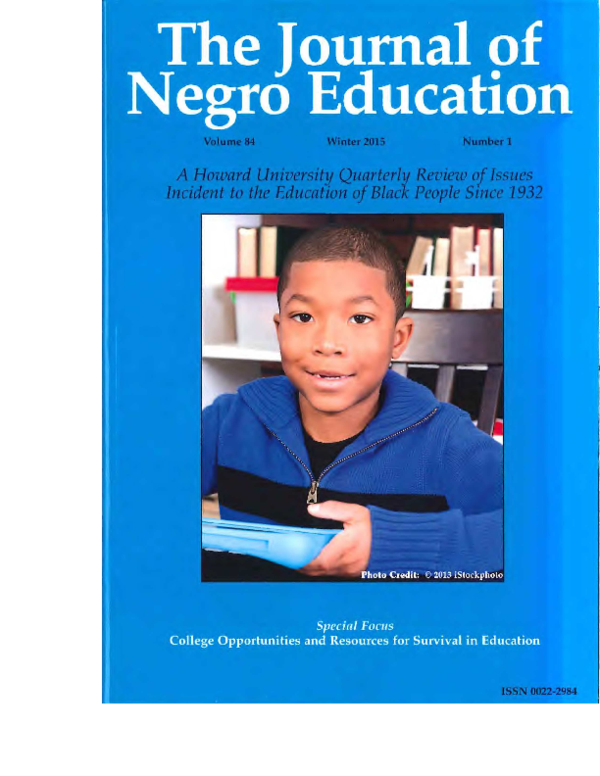Introduction: The Journal of Negro Education holds a significant place in the realm of African American education research. Since its establishment in 1932, the journal has played a vital role in documenting, disseminating, and advancing knowledge about the educational experiences of African Americans. This article explores the historical background of the Journal of Negro Education, its mission, and its enduring contributions to the field of education.

The Origins of the Journal
The Journal of Negro Education emerged during a time when educational opportunities for African Americans were limited due to racial segregation and systemic discrimination. The founders of the journal, led by Dr. Carter G. Woodson, sought to provide a platform to address the educational challenges faced by the African American community. By focusing on the unique needs, experiences, and achievements of African American students, the journal aimed to bring about positive change in the education system.
Mission and Scope
The mission of the Journal of Negro Education is to promote scholarly inquiry and critical analysis of educational issues impacting African Americans. It provides a platform for researchers, educators, and policymakers to share their insights, theories, and best practices. The journal encompasses a wide range of topics, including educational equity, culturally responsive pedagogy, academic achievement gaps, and the influence of social and economic factors on African American students’ educational outcomes.
Historical Significance
Over the decades, the Journal of Negro Education has been at the forefront of educational research, making groundbreaking contributions that have shaped the discourse on African American education. It has published influential studies examining racial disparities in educational opportunities, exploring strategies to address achievement gaps, and shedding light on the experiences of African American teachers and administrators. The journal’s rigorous scholarship has helped challenge stereotypes, inform policy decisions, and inspire meaningful change.
Contemporary Relevance
In today’s educational landscape, the Journal of Negro Education remains as relevant as ever. Despite progress, significant disparities persist in the educational experiences and outcomes of African American students. The journal continues to foster research that uncovers systemic barriers, advocates for equitable policies, and highlights innovative approaches to addressing these challenges. It serves as a catalyst for discussions on inclusive educational practices and the empowerment of African American learners.
Impact and Recognition
The Journal of Negro Education has earned widespread recognition for its scholarly rigor and impact. It is indexed in prominent databases and repositories, ensuring its articles reach a global audience of researchers, educators, and policymakers. The journal’s commitment to maintaining high academic standards has resulted in numerous citations and references in influential publications, contributing to the advancement of the field of education as a whole.
Transitioning to the Future
As the Journal of Negro Education moves forward, it continues to adapt to the changing needs of the African American community and the evolving landscape of education. Embracing digital platforms, the journal has expanded its accessibility, allowing for greater dissemination of research findings and engaging a broader range of voices. Through ongoing collaboration and dialogue, the journal aims to inspire fresh perspectives, innovative solutions, and a deeper understanding of the intersection between race, education, and social justice.
Conclusion
The Journal of Negro Education stands as a beacon of scholarship, activism, and progress within the field of African American education. For over nine decades, it has been a trusted source for research, fostering discussions, and shaping policies aimed at ensuring equitable educational opportunities for African American students. The journal’s legacy of excellence and commitment to transformative knowledge continues to inspire researchers, educators, and advocates to push the boundaries of educational equity and social justice.




